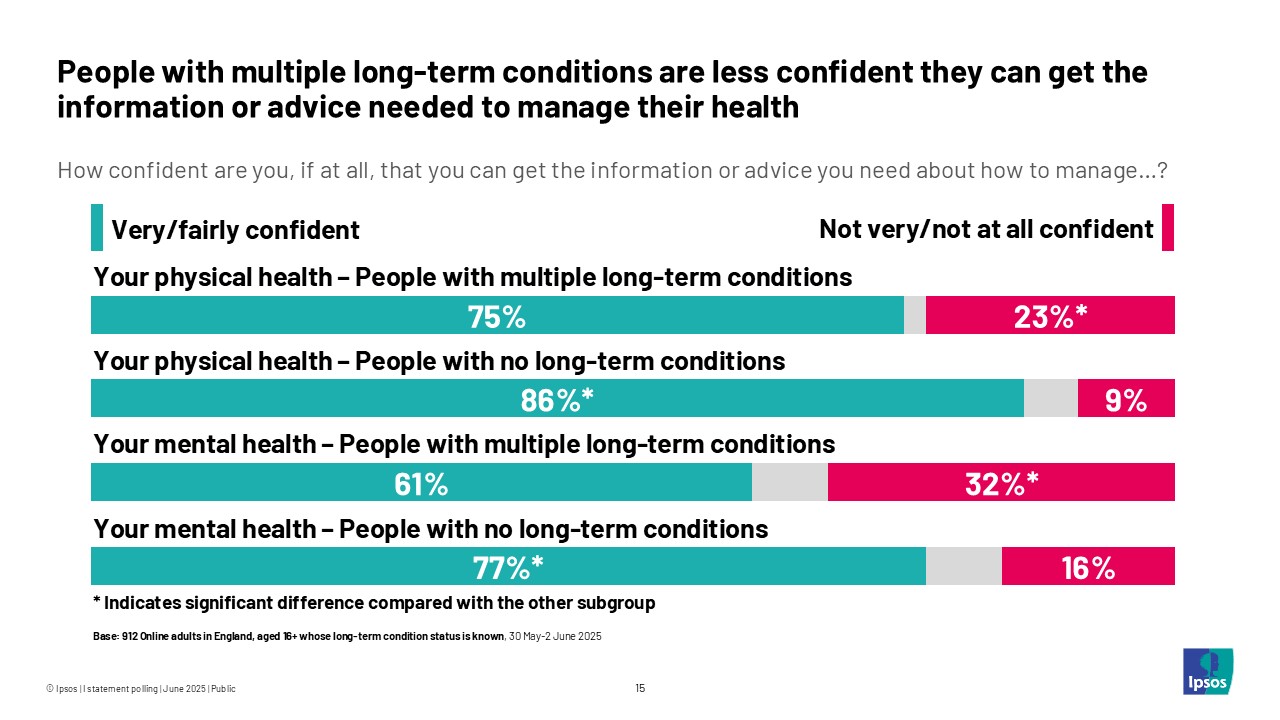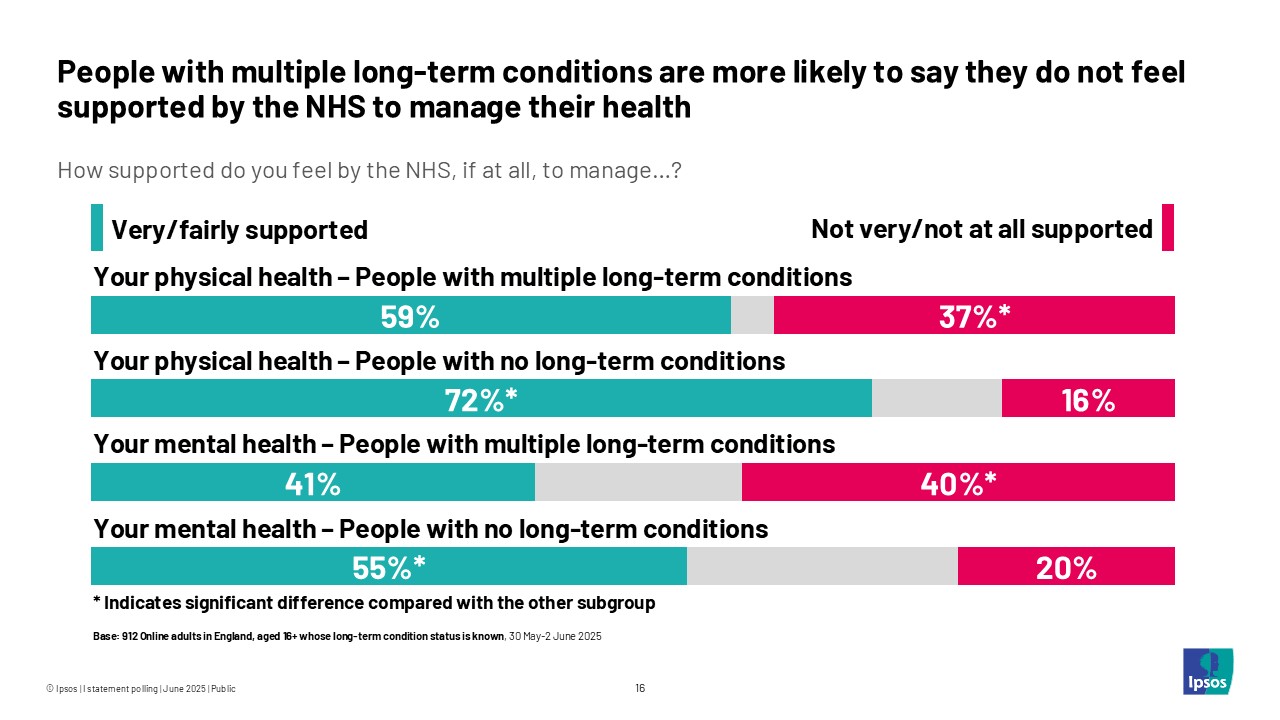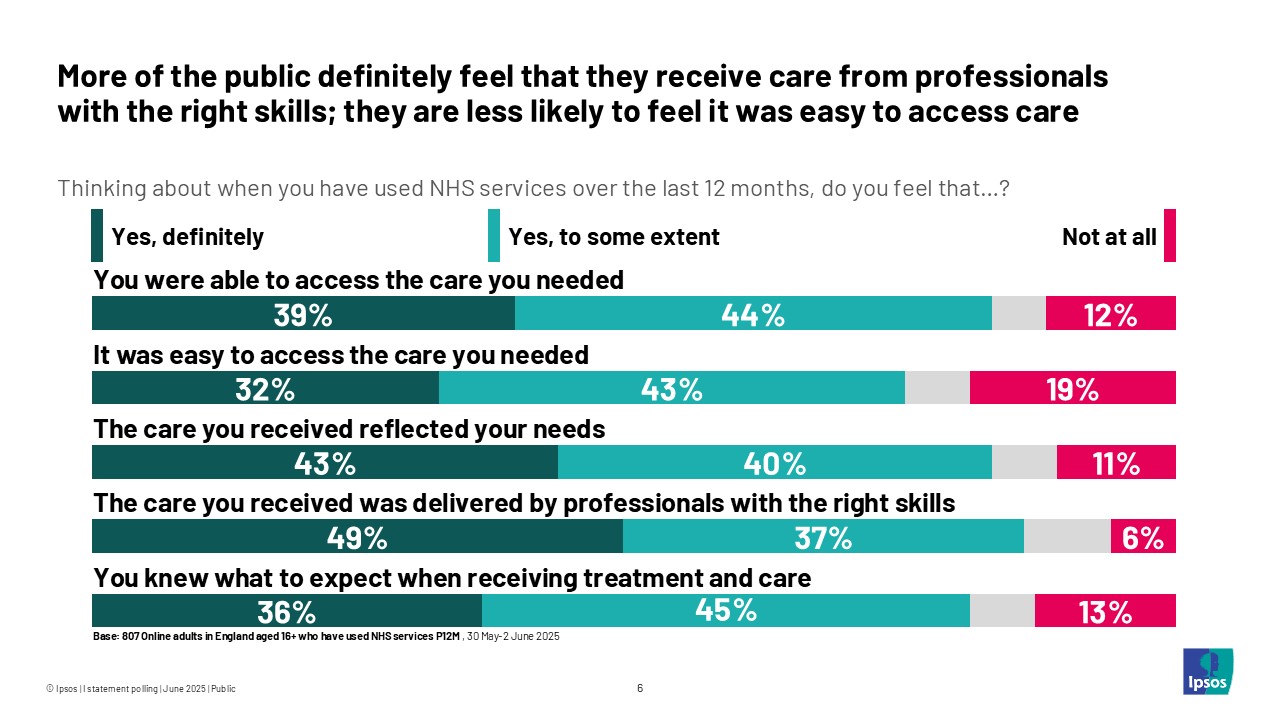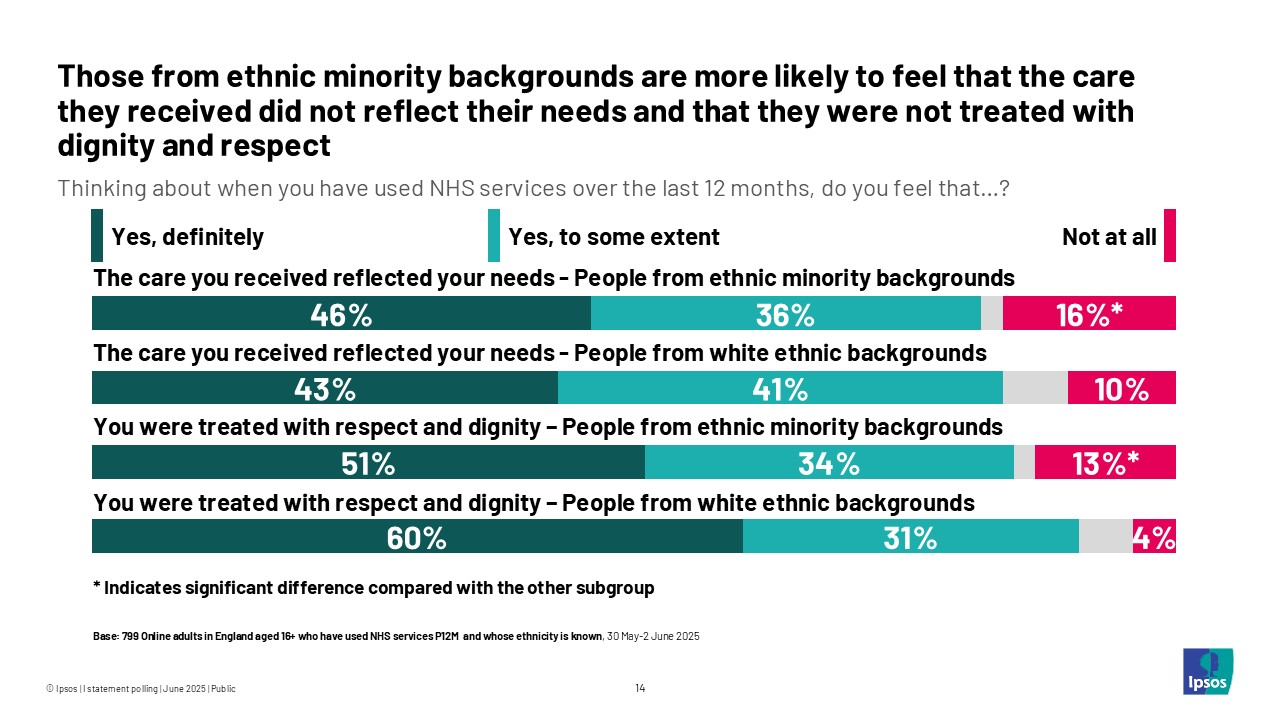Polling reveals ethnic minorities and people with multiple long term health conditions more likely to express dissatisfaction with NHS care
A new poll from Ipsos in the UK, alongside National Voices, reveals that while a majority of adults in England are confident in their ability to manage their health, significant gaps exist in perceived support, particularly for mental health, and in access to timely and appropriate care. Ethnic minorities and people with long term conditions (LTCs) are also significantly more likely to express dissatisfaction with care received. The poll utilised a series of ‘I statements’ to gauge public perception of the NHS and people’s personal experiences of the health service.
Key findings
- Confidence in health management: A strong majority (81%) of people in England say that they are confident that they can access the information and advice needed to manage their physical health (15% not confident). Seven in ten (70%) say the same about their mental health (22% not confident). However, people with multiple LTCs are around twice as likely to say as people with no LTCs that they are not confident they can get the information or advice needed to manage their mental or physical health.

- Confidence in mental health support lower than physical health: While confidence in managing health is generally high, fewer people feel supported by the NHS in managing their health, especially their mental health. Two in three (67%) feel supported in managing their physical health, but only half (50%) feel supported in managing their mental health. Once again, people with multiple long-term conditions are significantly more likely than people with no LTCs to say they do not feel supported by the NHS to manage their mental or physical health.

- Access to information and ease of obtaining care: When reflecting on their experiences using NHS services in the last 12 months, the majority of people felt that the care they received was delivered by professionals with the right skills (86% definitely/to some extent, 6% not at all), but they are less likely to feel it was easy to access care (75% definitely/to some extent, 19% not at all).

- Communication: Over eight in ten (84%) say that they feel that they were listened to when using NHS services, with 8% saying they were not. This doubles to 16% among those with multiple long-term conditions.
- Joined up care: A significantly higher percentage of individuals with multiple long-term conditions disagreed with the statement that "all the different professionals caring for you worked well together” (21% of those with multiple long-term conditions disagree vs 11% with no long-term conditions). The same percentage disagree that “When you moved between services, settings or areas, there was a plan for what would happen next".
- Fair and inclusive treatment: Among all people, 87% say that they were treated fairly and didn’t face discrimination because of their background (62% definitely, 25% to some extent, 5% not at all). However, those from ethnic minority backgrounds more likely to say ‘not at all’ for care reflecting their needs (16%) and being treated with respect and dignity (13%) than those from white ethnic backgrounds.

Commenting on the findings, Anna Quigley, Research Director at Ipsos said:
Our new research highlights some critical disparities in people's experiences with NHS care. While overall confidence in managing health is high, particularly regarding physical health, the poll reveals significant gaps in perceived support for mental health. We can also see that a concerning number of people from ethnic minorities report a lack of respect, dignity, and culturally appropriate care. Similarly, people with multiple long-term conditions face significant challenges, including difficulties accessing information, a lack of joined-up care, and feeling unheard. As Labour approaches one year in power, and the government prepares to release its ten-year health plan for the NHS, these findings provide valuable insights for policymakers and NHS leaders as they work to improve the patient experience and address health inequalities.
Jacob Lant, Chief Executive of National Voices added:
There are 25 million people living with a Long-Term Condition in this country, and this growing fast. If we cannot create an NHS that allows people to feel supported to look after their own health, we are at risk of presiding over the slow death of the NHS. At Confed, we heard Sir Jim Mackey say he was ready to “tear up” outdated care models and this attitude must hold true to rethinking how we measure the success of the NHS. The Secretary of State underlined this by talking up the important of tracking outcomes in the imminent 10 Year Plan, not just looking at activity targets. This survey shows the potential insights that can be gained if the NHS focuses on asking people if the NHS is achieving on things that matter to them. With the 10-year plan likely to emphasise patient voice and choice, we urge the Government to think next about how it listens to patients and acts on what it hears.
Technical note:
- Ipsos interviewed a representative sample of 984 adults aged 16+ across England. Polling was conducted online between the 30th of May and 2nd of June 2025.
- Data are weighted to match the profile of the population. All polls are subject to a wide range of potential sources of error.
- You can read more about National Voices’s work on improving the way we measure success in the NHS in our new report here: Working for patients: How improving the experience of patients with long-term conditions can deliver the Government’s ten year health plan – National Voices



